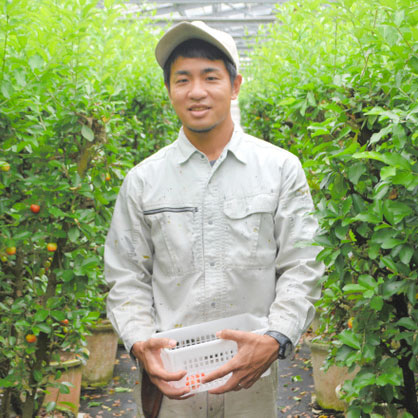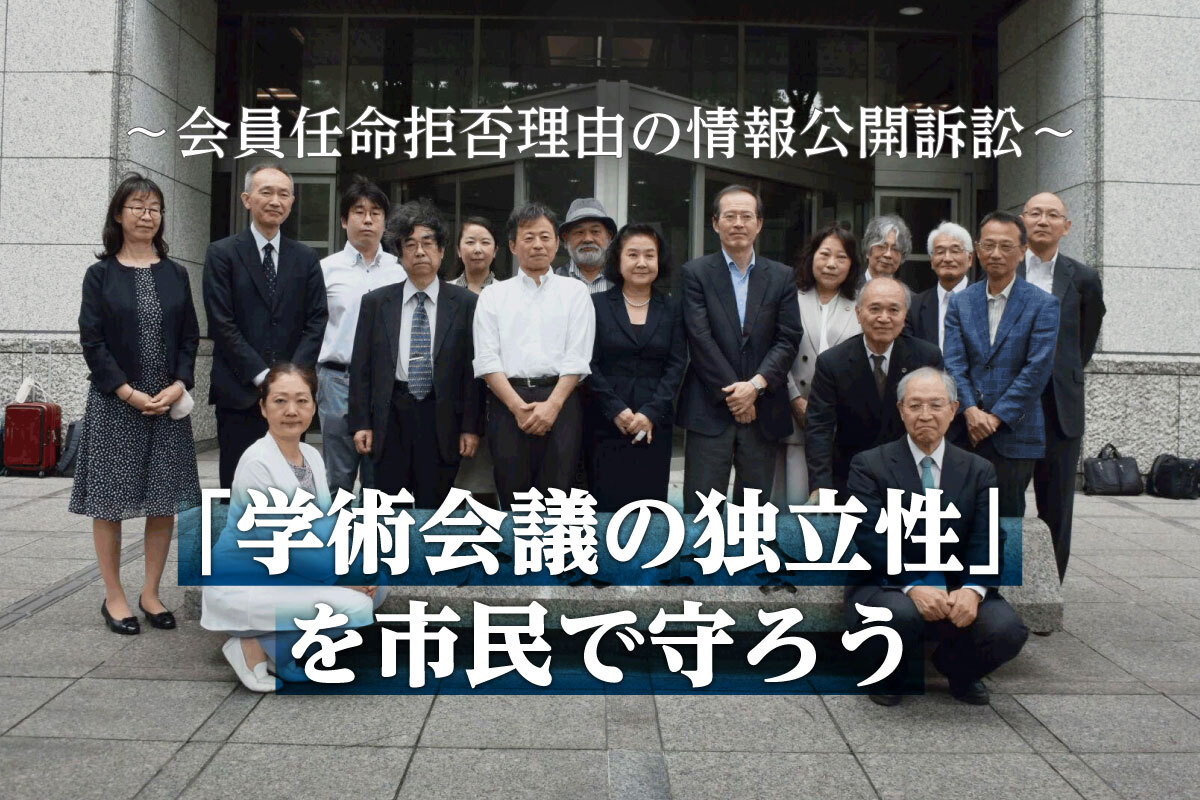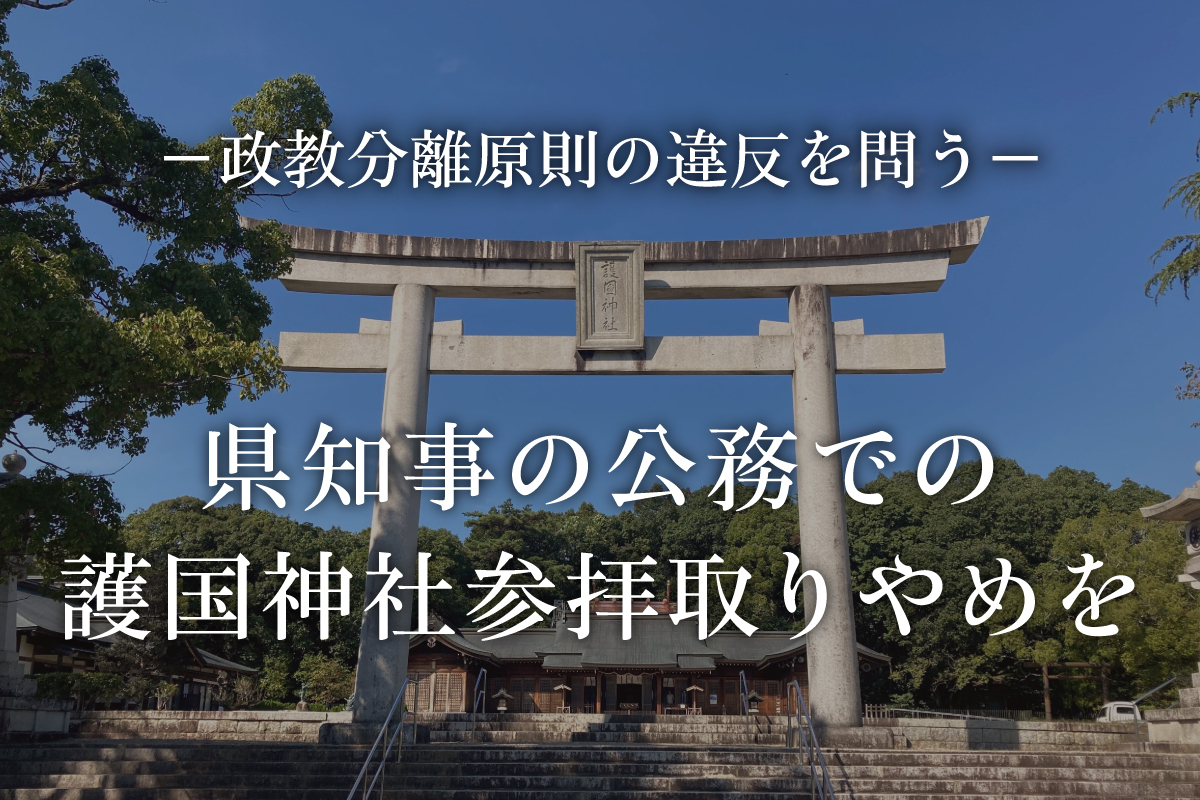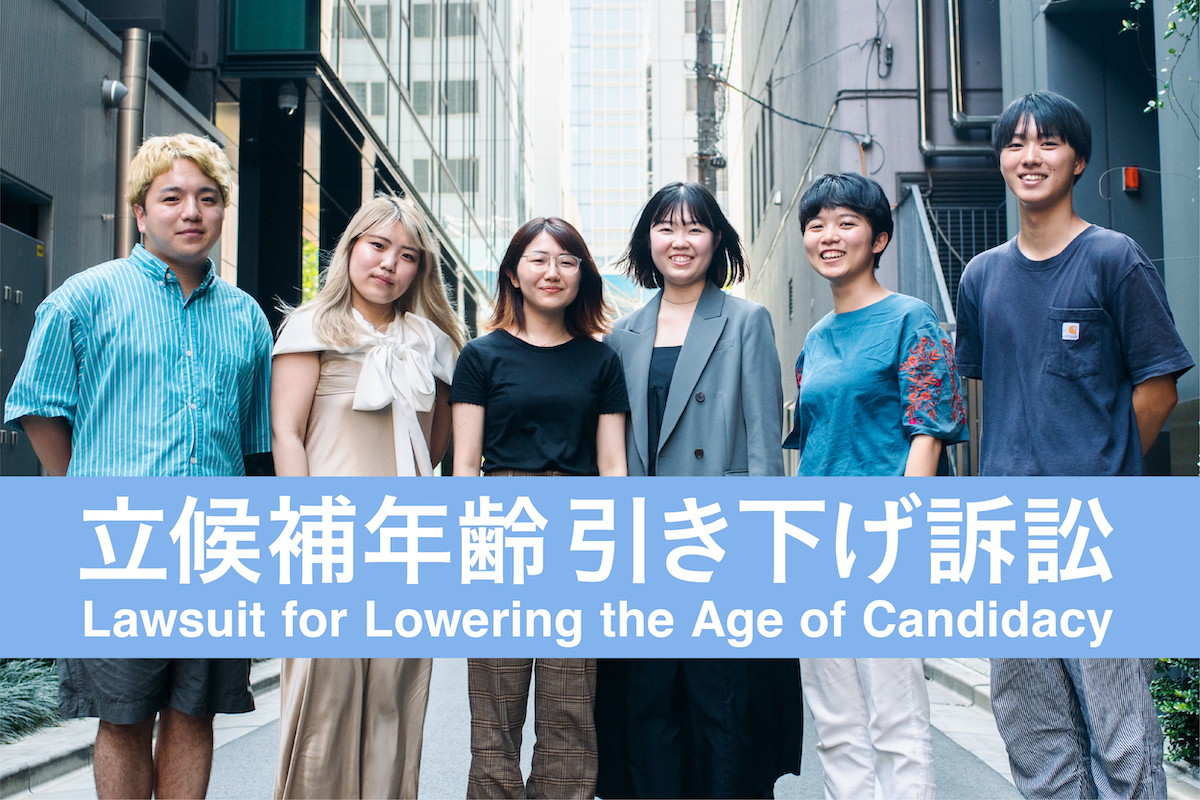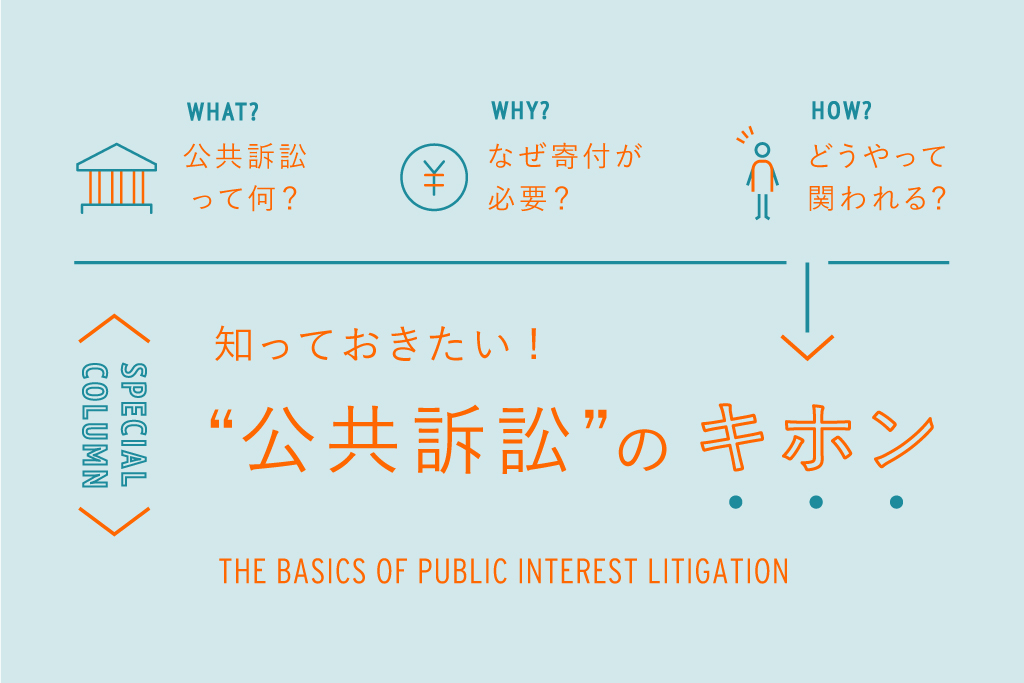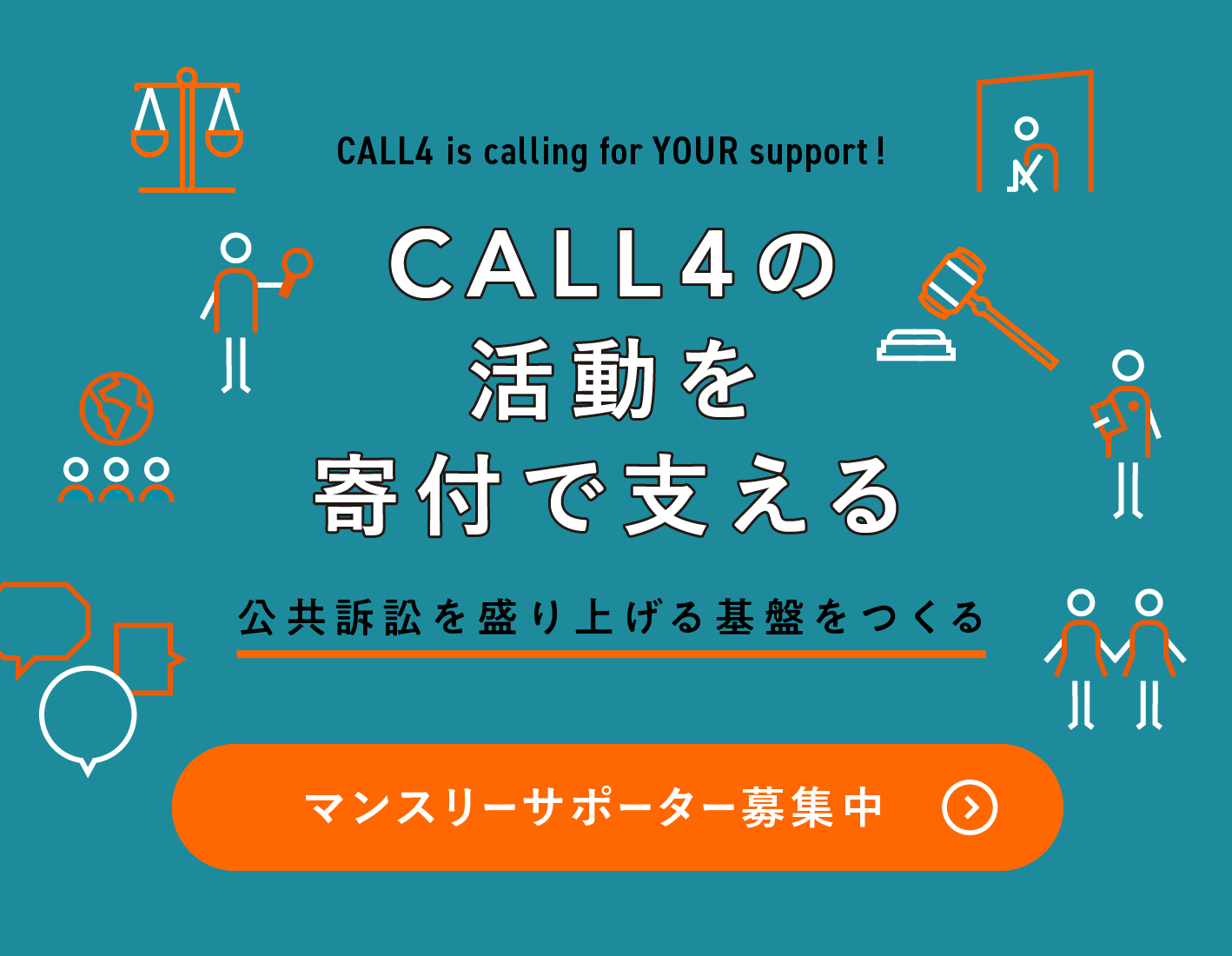要件を満たす島民の請求を市長が拒否!石垣島住民投票の権利を問う裁判【アーカイブ】 Lawsuit Demanding the ‘Ishigaki Island Referendum’ in Response to the Mayor’s Rejection of the Request of Residents that Meet the Requirements!
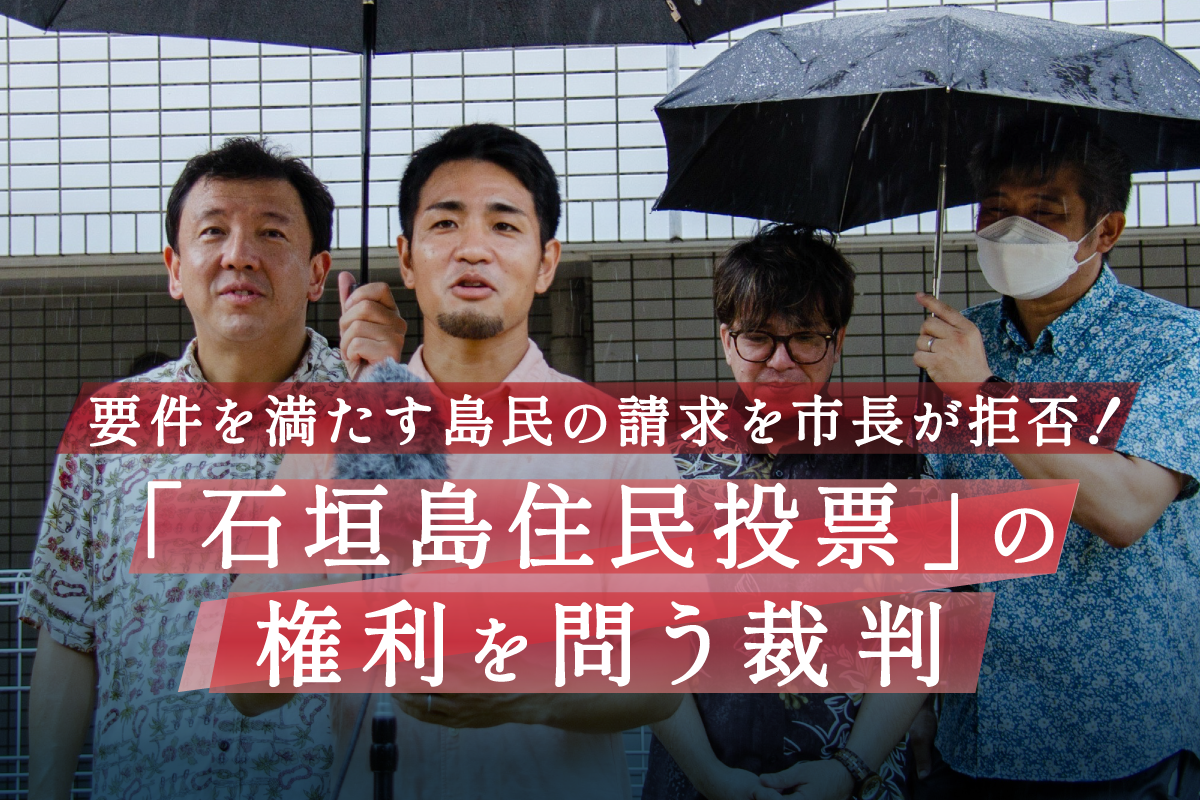
石垣島では2018年に市条例に基づく市民発議での住民投票請求がなされました。しかし、請求要件を満たしたにもかかわらず住民投票は実施されませんでした。この問題には、住民投票のテーマが自衛隊配備という安全保障に関わる国策事業であることが背景にあります。市民生活と自然を守ろうと足元を見つめて立ち上がった運動が、安全保障の議論を巻き込んだ地方自治と民主主義を守る戦いに発展しています。 In Ishigaki Island, the residents made a request for a referendum in 2018 based on a municipal ordinance for citizen-initiated proposals. However, despite the request meeting the requirements, the local government did not carry out the referendum. The background to this issue is that the theme of the referendum concerns national security policy regarding the deployment of the Self-Defense Forces. What began as a movement to protect local livelihoods and nature has evolved into a struggle to defend local autonomy and democracy, encompassing debates on national security.
2024年7月31日から開始したクラウドファンディングですが、約1か月の期間で多くのご寄付をいただき、2024年9月4日に最初の目標である50万円を達成することができました!
心より感謝申し上げます。ありがとうございます。引き続き、#住民投票は権利、を裁判所に訴えて参ります!
ネクストゴールとしてさらに100万円を目標にご寄付を募りたいと思いますので、引き続きご支援のほど、どうぞよろしくお願いいたします。
はじめに
政府は沖縄の島々で自衛隊を増強する「南西シフト」の一環として、石垣島にも2023年に新たに部隊を配備しました。
この配備に至るまでに、実は2018年に石垣市民たちは市に対して石垣市自治基本条例に基づく駐屯地建設予定地への賛否を問う住民投票の実施を求めていました。
それにもかかわらず、石垣市はこれを拒み続けたため、市民たちは2019年の「住民投票義務付け訴訟」を皮切りに裁判闘争に踏み出しました。しかし、司法からの救済を得られないまま2023年に駐屯地は開設されてしまいました。
石垣市では、国策を背景に市民の権利は剥奪され、地方自治と民主主義は危機的状況に直面しています。
これまでの経緯
陸上自衛隊石垣島駐屯地は、石垣島の平得大俣地域に建設されました。日本政府は中国と台湾の軍事衝突、いわゆる「台湾有事」への対処として沖縄の島々に次々と陸自駐屯地を新設し、島民の島外避難計画やシェルター整備などの議論もここ数年で急進しています。
その一方で、石垣島では建設が始まる前に、石垣市民たちによって駐屯地建設予定地の賛否を問う住民投票実施を目指す「石垣市住民投票を求める会」が2018年10月に結成されていたことはあまり知られていません。駐屯地建設地は、石垣島の中央に位置し、水源地のひとつとして貴重な於茂登岳の麓であったため、市民から強い反発を招いていたのです。防衛省から計画についての説明はほとんどなく、新聞紙面で計画を知った地権者もいたほどでした。
駐屯地隣でマンゴー農家を営む当時28歳の青年が会の代表になり、署名活動は当時10代後半〜20代を中心に展開されました。この運動には、老若男女問わず幅広い世代や職業の市民が参加しました。
しかし、要件を大きく上回る署名が集まったにもかかわらず、市は住民投票を拒み続けます。住民投票の会は2019年9月、那覇地裁に「住民投票義務付け訴訟」を提起したものの救済されず、現在は当事者訴訟において上告中。9月6日の最高裁への要請行動のほか、石垣市住民投票訴訟についての法曹界や全国の市民たちに向けたオンライン勉強会やオンライン署名活動を企画しているところです。
事案の概要
石垣市自治基本条例28条1項
市民のうち本市において選挙権を有する者は、市政に係る重要事項について、その総数の4分の1以上の連署をもって、その代表者から市長に対して住民投票の実施を請求することができる。
石垣市自治基本条例28条4項
市長は、第1項の規定による請求があったときは、所定の手続を経て、住民投票を実施しなければならない。
つまり、石垣市自治基本条例には、石垣市の有権者の4分の1以上の署名が集まり住民投票をしたいという請求がなされれば、石垣市長は請求がなされたテーマの住民投票を実施しなければならず、住民投票の実施義務を負う、とはっきり書かれていました。
石垣市平得大俣地域への陸上自衛隊配備計画の賛否を問う住民投票(本件住民投票)に関して、石垣市の有権者の4分の1を超える3分の1の署名が集まり、2018(平成30)年12月20日、石垣市に対し、石垣市自治基本条例28条1項に基づく住民投票実施請求がなされました。
石垣市自治基本条例28条1項の住民投票実施請求の手続は、地方自治法74条1項の条例制定請求の手続を借りていったん石垣市議会に付議することになっていました。本件住民投票についても、いったん本件住民投票を実施する条例の制定請求がなされました。ところが、市議会はこの実施条例の制定を否決しました。これを受けて、石垣市長は、本件住民投票の実施義務を拒否し続けています。
本件住民投票を請求した請求代表者全員は、石垣市を被告、処分行政庁を石垣市長として住民投票の実施の義務付け訴訟を起こしましたが、住民投票の実施には処分性がないとして那覇地方裁判所で訴えが却下され、その後、最高裁判所まで争いましたが、上告棄却(上告不受理)となってしまいました。
石垣市の有権者のうち有志3名は、義務付け訴訟と並行して、住民投票に投票することができる地位の確認、石垣市長が本件住民投票を実施しないことが違法であることの確認などを求めて、公法上の地位の確認訴訟である実質的当事者訴訟を起こしています。今、最高裁判所第一小法廷に係属しているのがこの実質的当事者訴訟です。
原告の思い
住民投票の会を立ち上げるにあたってかなり葛藤しました。隔離された小さな島で若い世代が主体となって政治に関わる運動をすることには、それぞれの人生に大きなリスクを伴うからです。中心メンバー以外の若年者には仕事や親戚付き合いへの配慮から顔や名前を伏せて活動している人も多くいました。
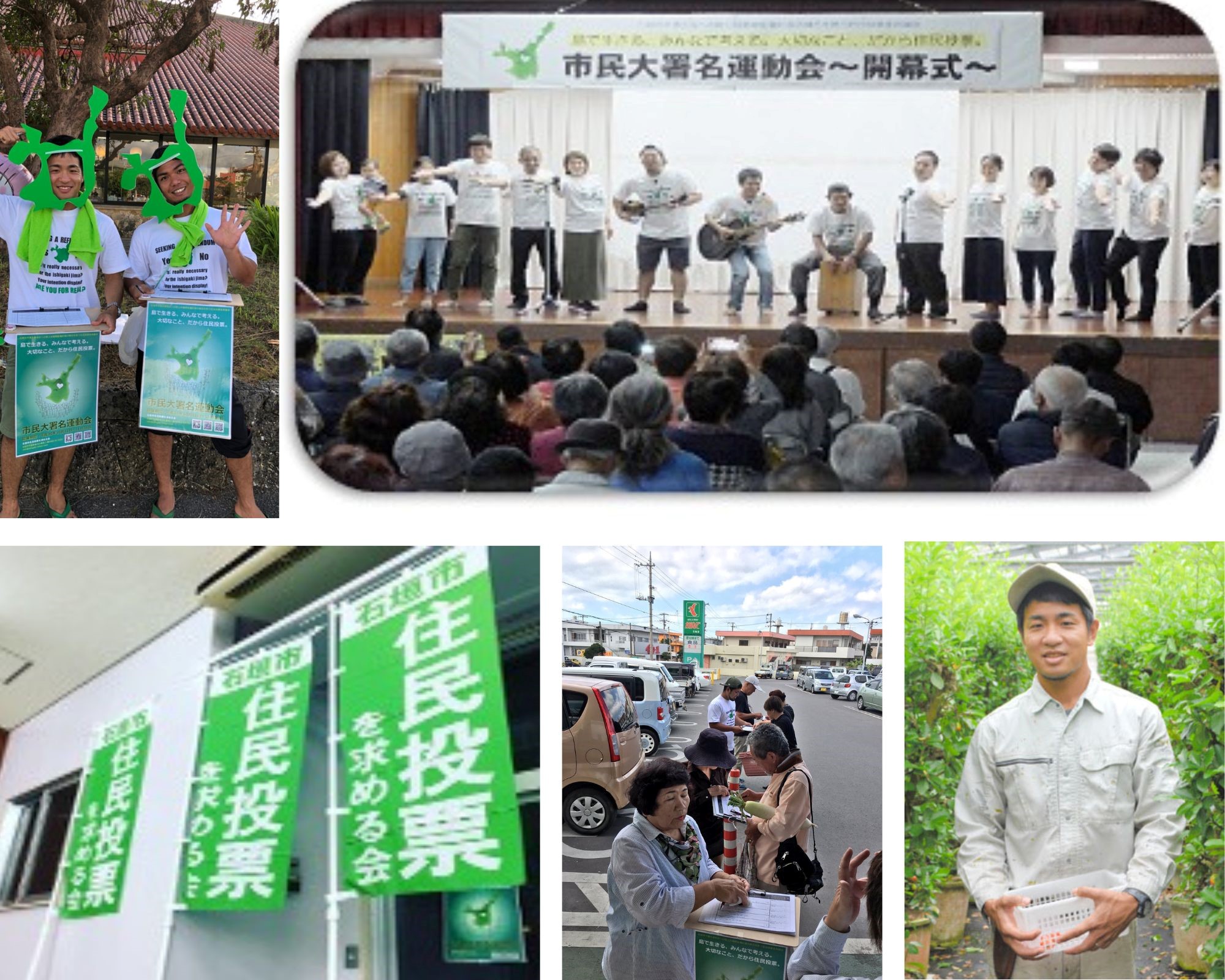
また、これまで市民運動や選挙にも関わったことがない私たちが本当に1/4もの署名を集めることができるのか不安もありました。しかし、結果的には1か月という短い期間で1万4263筆も集まったのです。これは、会メンバーだけでなく多くの市民が主体的に行動した結果でもありました。学校終わりに自転車で署名に来てくれる高校生たちもいました。
於茂登岳は農業用水・生活用水をまかなう島の貴重な水源地のひとつとして、また古くから霊山として信仰される聖地であることは島では広く知られています。駐屯地周辺の4地区公民館は反対決議を表明し、環境学や地質学の専門家を招いた現地調査で建設にあたって環境アセスが必要と結論づけられたことを市に提言もしましたが、防衛相は2019年に改定される沖縄県環境アセスの経過措置に駆け込む形で同年3月、一部の造成工事に先行着手したのです。このあまりに強行的なやり方に市民は猛反発しました。
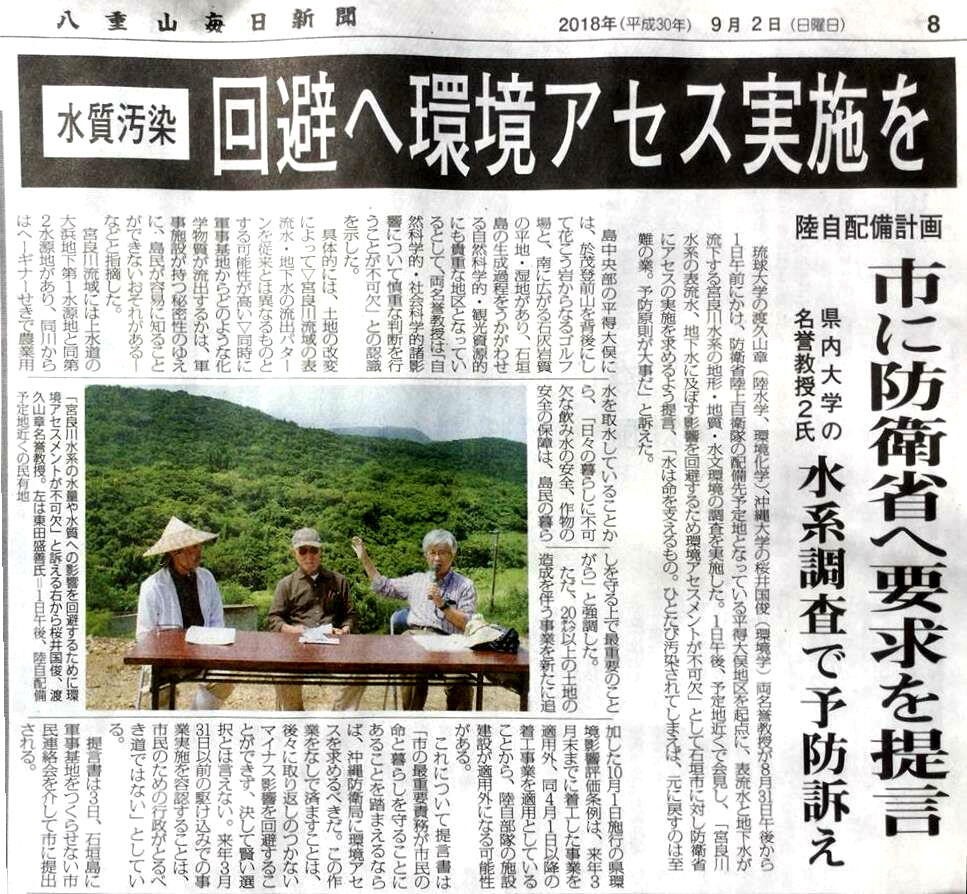
▲2018年9月2日 八重山毎日新聞
さらには、市と議会与党は事実上結託した形で裁判係争中に市住民投票についての条文条例を削除してしたため、現在27条・28条は消されてしまっています(審議委員に市側弁護士 石垣市自治条例見直し言及https://www.okinawatimes.co.jp/articles/-/626815)。権力者に対して二度と市民が声を上げられないよう封殺してしまったのです。このまま私たちの署名と住民投票の権利がなかったことにされてはならない。そのためには、最高裁で棄却されるわけにはいきません。
本訴訟の争点
現在係属している訴訟の控訴審判決では、地方公共団体には議会をもうけるという憲法93条1項を根拠として、①普通地方公共団体は間接民主制を基本としている、との論を述べたうえで、②石垣市自治基本条例28条4項における住民投票の実施のためには、議会の可決による個別の住民投票条例が必要である、という判決が下されました。上告審では、このような控訴審判決の判断について、以下の4点を争っています。
第一の争点
- ①普通地方公共団体は間接民主制を基本としている、という控訴審判決の論は、地方自治に関する憲法の規範構造に真っ向から反するのではないか。
第二の争点
- ②石垣市自治基本条例28条4項における住民投票の実施のためには、議会の可決による個別の住民投票条例が必要である、と解釈されるか。
この解釈をとると、「4分の1以上」の署名による請求を定めた石垣市自治基本条例28条1項は、結果的に「50分の1以上」の署名による条例制定請求を定めた地方自治法74条1項と同一の趣旨・目的に出たものということになります。そうすると、控訴審判決の②による石垣市自治基本条例28条1項は、地方自治法74条1項よりも厳しい要件を定めたこととなり、「法律の範囲内」での条例制定権を定めた憲法94条及び地方自治法14条1項に反する解釈となってしまうのではないかが問題になります。)
第三の争点
- ①普通地方公共団体は間接民主制を基本としている、との論を前提として、
②石垣市自治基本条例を含む法令によって創設された住民投票制度における住民投票の実施のためには、議会の可決による個別の住民投票条例が必要である(あるいは、議会が住民投票の実施の可否を判断する必要がある)とすると、石垣市自治基本条例以外の法令によって創設された住民投票制度の解釈にも多大な悪影響を与えるため、そのような解釈はとりえないのではないか。
第四の争点
- 控訴審判決の②の解釈は、市民の法解釈の予測可能性を担保するための「明確な言明原則(Clear Statement Rule)」に反するのではないか。
「明確な言明原則」とは、ある公法解釈が関係当事者(市民)に不利益的ないし権利侵害的である場合には、当該解釈を指示する旨が法律で明示されていることを要するとの解釈原則であり、最高裁判例上も明確な言明原則がとられています。)
《理解を深めていただくためのQ&A》
Q1 第一審判決はなぜ住民の訴えを却下したのですか
A1 第一審判決は二つの理由で住民の訴えを却下(門前払い)しました。
【理由1】現在では石垣市自治基本条例28条1項・4項を含む住民投票に関する条項は削除されているから、本件住民投票に投票することができる地位がなくなっている。
→これは、住民投票に関する条項の削除という法の改正(改悪)の効力がさかのぼることを前提としたものですが、法解釈の大原則の一つである法令不遡及の原則に明らかに反し、誤っています。
【理由2】当事者訴訟で地位確認をしても住民投票が実施される保証はないから、確認の利益がない。
→この理由も明らかに誤っており、最高裁2022年5月25日大法廷判決にも反するものです。石垣市の住民のみなさんは、義務付け訴訟を提起したにもかかわらず処分性がないとして救済がなされませんでした。そうである以上、当事者訴訟で救済を求めるしか方法がありません。そして、当事者訴訟の判決において本件住民投票に投票しうる地位などが確認されれば、石垣市長はこの判断を尊重して本件住民投票を実施せざるをえない(司法の判断を無視することは許されない)のですから、当事者訴訟の確認の利益があることは明白です。これらのことは、最高裁判所裁判官の国民審査について定めた国民審査法が在外国民の審査権を欠いていることが違憲であると判断した2022年5月25日の最高裁大法廷判決も指摘しています。
Q2 控訴審判決はなぜ控訴棄却(原審の却下判決を維持)したのですか
A2 控訴審判決は、第一審判決が下した却下ではなく、住民の訴えを棄却すべきであるという結論を出しました。ただし、住民側しか控訴していなかったため、不利益変更禁止の原則により、控訴した住民側にとってより不利益となる棄却判決ではなく、第一審の却下判決を維持する控訴棄却が相当である、としたのです。
しかし、住民の訴えを棄却すべきであるとした理由は既にみたとおり、いずれも誤っています。そればかりか、これらの理由は石垣市側がまったく主張していないものであり、控訴審判決を書いた裁判官がひねり出したものなのです。なぜ、控訴審はこのような理由(屁理屈)をひねり出したのでしょうか。控訴審の裁判官たちは、行政救済法の本来の目的である、行政から権利を侵害された住民の救済をするのではなく、行政訴訟の判決で犯してはならない明白な誤りを犯した第一審の裁判官たちを救済しようとしたのではないでしょうか。
社会的意義
第一の社会的意義
本訴訟により、住民投票制度を含む直接民主制の制度が、憲法92条の「地方自治の本旨」の一内容である住民自治の理念に適したものであって、かつ、住民自治の理念を具体化したものであることを明らかにすることによって、地方自治体に対し、住民投票制度を含む直接民主制の制度を積極的に実施ないし活用させることができます。
ここで、「地方自治(体)において間接民主制が基本である」という実質的当事者訴訟の控訴審判決の論がまかりとおれば、住民投票制度を含む直接民主制の制度についての法令の解釈に多大な悪影響を及ぼし、憲法92条の「地方自治の本旨」の一内容である住民自治の理念は有名無実化してしまいます。
地方自治法やいくつかの条例には、法令によって創設された住民投票制度がおかれています。例えば、地方自治法上、議会の解散請求などの直接請求制度の中に住民投票制度が組み込まれています。また、神奈川県大和市や大阪府豊中市の自治基本条例にも住民投票制度がもうけられています。石垣市自治基本条例の住民投票制度も法令によって創設された住民投票制度です。これらの住民投票制度は直接民主制の制度であって、住民自治の理念を具体化したものです。
控訴審判決が展開した「地方自治(体)において間接民主制が基本である」などという論が憲法の規範構造に真っ向から反するものであって誤っていることを明確にし、住民投票制度が直接民主制の制度であって住民自治の理念を具体化したものであることを浮き彫りにすることによって、住民投票を積極的に実施ないし活用させることができます。
第二の社会的意義
石垣市自治基本条例24条1項の求める「4分の1以上」を超える「3分の1以上」の署名が集まり、本件住民投票の実施請求がなされたにもかかわらず、いまだに本件住民投票は実施されていません。石垣市自治基本条例28条1項と同4項を信頼して本件住民投票の実施請求をした原告ら石垣市民の思いは踏みにじられ続けたままです。
このような事態を容認し、控訴審判決が維持されるようなことが起きれば、甚大な悪影響を及ぼします。すなわち、行政法規全般において、市民の法解釈の予測可能性は担保されなくなり、行政が後付けの屁理屈で市民に不利益的な法解釈をして市民の権利を侵害することがまかりとおってしまいます。司法がそのような行政の屁理屈を容認すれば、行政による権利侵害を救済するための行政救済法は、画に描いた餅となってしまいます。
このような事態を防ぎ、行政による権利侵害を救済するために、最高裁は、明確な言明原則を採用しています。本件においても、石垣市自治基本条例24条1項と同4項につき、明確な言明原則を適用することによって、行政による権利侵害が救済され、市民の法解釈の予測可能性が担保されることになります。とともに、行政による権利侵害を救済するための行政救済法が画に描いた餅となってしまうことを防ぐことができます。
資金の使途
最高裁判所に対する要請行動にかかる費用(宿泊交通費・ビラの印刷費用・集会の会場費等):実質的当事者訴訟の上告審において、要請行動を行う予定です。この要請行動は、原告団、支援者、弁護団などが最高裁判所前で登庁する裁判官や職員などにビラまきをおこなったうえで、最高裁判所に対して一事件30分程度の要請を行い、その後、最高裁判所周辺の会場で集会を行うものです。
上告理由や上告受理申立て理由の補充書に関する各分野の専門家からの鑑定書や意見書作成費用
*2024年9月4日にファーストゴールの50万円を達成することができました。
現在、セカンドゴールの100万円を目指しています。引き続き何卒よろしくお願いいたします。
弁護団からのメッセージ
当たり前に実施されるべき住民投票が、なぜいまだに実施されないのか。
裁判所は、なぜ救済の役割を果たそうとせず、逃げ回るのか。
判決が出るたびに猫の目のように変わるこじつけの判決理由を見ると怒りと無力感にさいなまれます。しかし、原告のみなさんとともに何度でも立ち上がって理不尽と不正義を訴え続けています。
南の島、石垣島で起きたことは、日本全国で起こりうることです。
日本全国の市民の方々に、わがこととしてこの訴訟に関心をもっていただきたいと願ってやみません。
担当弁護士のご紹介
大井 琢 弁護士(弁護団長)
中村昌樹 弁護士
小林 武 弁護士
寄付のお願い
住民投票の会は、石垣市内や日本全国の方々からの寄付で活動できています。
石垣島は離島であるため、那覇地裁・福岡高裁への出廷や集会などがあるたびに旅費や宿泊費負担が重くのしかかってきました。沖縄本島へ行くのにも飛行機代だけで離島割引を使っても1人2万円ほどです。
皆様からいただいた寄付は大事に使わせていただきながら、活動資金は十分とはいえないため、できる限り手弁当で頑張っているところです。
恐縮なお願いではありますが、皆様から寄付でのご支援をいただけると幸いです。
*Translated by google translate
We started crowdfunding on July 31st, 2024, and received many donations in about a month, and reached our initial goal of 500,000 yen on September 4th, 2024!
We are truly grateful. Thank you very much. We will continue to take our #referendumtotherighttothecourt!
Our next goal is to raise an additional 1 million yen, so we appreciate your continued support.
Introduction
The government has also deployed new troops to Ishigaki Island in 2023 as part of a "southwest shift" to increase the Self-Defense Forces' presence on the Okinawa islands.
In fact, leading up to this deployment, in 2018, the citizens of Ishigaki had called on the city to hold a referendum to ask whether they supported or opposed the planned site for the garrison, based on the Ishigaki City Basic Ordinance on Autonomy.
Despite this, Ishigaki City continued to refuse, so citizens launched a legal battle, starting with the "mandatory referendum lawsuit" in 2019. However, without receiving any judicial relief, the garrison was opened in 2023.
In Ishigaki City, citizens' rights are being stripped away as a result of national policy, and local autonomy and democracy are facing a crisis.
Background
The Ground Self-Defense Force Ishigakijima Garrison was built in the Hedo Omata area of Ishigakijima. In response to a military conflict between China and Taiwan, a so-called "Taiwan emergency," the Japanese government has been building new GSDF garrisons one after another on the islands of Okinawa, and discussions on evacuation plans for island residents off the islands and the construction of shelters have also intensified in recent years.
Meanwhile, what is not widely known is that before construction began on Ishigaki Island, the Ishigaki City Residents' Association was formed in October 2018 with the aim of holding a local referendum on the proposed site for the garrison. The site for the garrison is located in the center of Ishigaki Island at the foot of Mount Omoto, a precious water source, which sparked strong opposition from the residents. The Ministry of Defense provided almost no explanation about the plan, and some landowners only found out about it in the newspaper.
A 28-year-old man who ran a mango farm next to the garrison became the head of the group, and the signature campaign was carried out mainly by people in their late teens and twenties. Citizens of a wide range of generations and occupations, regardless of age or gender, participated in this campaign.
However, despite collecting far more signatures than required, the city continues to refuse to hold a referendum. In September 2019, the Association for the Referendum filed a lawsuit to make a referendum mandatory in the Naha District Court, but was not granted relief, and is currently appealing the decision as a party to the lawsuit. In addition to the request to the Supreme Court on September 6th, we are planning online study sessions and online signature campaigns for legal professionals and citizens across the country regarding the Ishigaki City Referendum Lawsuit.
Overview of the case
Article 28, Paragraph 1 of the Ishigaki City Basic Ordinance on Autonomy : Citizens who have the right to vote in this city may, with the joint signatures of more than a quarter of the total number of citizens, request the mayor to hold a referendum on important matters related to city administration.
Article 28, Paragraph 4 of the Ishigaki City Basic Ordinance on Autonomy <br>When a request is made pursuant to the provisions of Paragraph 1, the Mayor must hold a referendum after going through the prescribed procedures.
In other words, the Ishigaki City Basic Ordinance on Autonomy clearly states that if a request for a referendum is made with the signatures of more than a quarter of the voters in Ishigaki City, the mayor of Ishigaki City must hold a referendum on the topic for which the request has been made, and is obligated to hold a referendum.
Regarding the referendum to ask whether or not to support the plan to deploy the Japan Ground Self-Defense Forces in the Hedo Omata area of Ishigaki City (this referendum), signatures from one-third of the voters in Ishigaki City, more than one-quarter of the voters in Ishigaki City, were collected, and on December 20, 2018, a request to hold a referendum was made to Ishigaki City pursuant to Article 28, Paragraph 1 of the Ishigaki City Basic Autonomy Ordinance.
The procedure for requesting the holding of a referendum under Article 28, Paragraph 1 of the Ishigaki City Basic Autonomy Ordinance was to be submitted to the Ishigaki City Council for deliberation, using the procedure for requesting the enactment of an ordinance under Article 74, Paragraph 1 of the Local Autonomy Law. A request for the enactment of an ordinance to implement this referendum was also made for this referendum. However, the City Council rejected the enactment of this implementing ordinance. In response to this, the mayor of Ishigaki City has continued to refuse his obligation to implement this referendum.
All the representatives who requested the referendum in this case filed a lawsuit against Ishigaki City as the defendant, and the Mayor of Ishigaki City as the administrative authority to impose the decision, to require the holding of a referendum. However, the lawsuit was dismissed by the Naha District Court, as the decision to hold a referendum was not a disposition. The case was then fought all the way to the Supreme Court, but the appeal was dismissed (appeal not accepted).
In parallel with the mandatory lawsuit, three volunteer voters in Ishigaki City have filed a substantial party lawsuit, which is a lawsuit to confirm their status under public law, seeking confirmation of their ability to vote in the referendum and confirmation that the mayor of Ishigaki City's failure to hold the referendum in question is illegal. This substantial party lawsuit is currently pending in the First Petty Bench of the Supreme Court.
Plaintiff’s thoughts
I had a lot of conflicts when I started the local referendum group. On an isolated, small island, having young people take the lead in a political movement carries great risks for each individual. Many of the young people other than the core members kept their faces and names secret out of consideration for their work and family relationships.

We were also worried that we, who had never been involved in citizen movements or elections, would really be able to collect a quarter of the signatures. However, in the end, we managed to collect 14,263 signatures in just one month. This was the result of the initiative of not only our members, but also many citizens. Some high school students even came by bicycle to sign the petition after school.
Mount Omoto is widely known on the island as one of the island's precious water sources that provides water for agricultural and domestic use, and as a sacred place that has been revered as a sacred mountain since ancient times. Four community centers in the area surrounding the garrison expressed their opposition to the plan, and recommended to the city that an environmental assessment was necessary for construction after an on-site investigation by environmental and geological experts was concluded. However, the Minister of Defense rushed to take advantage of the transitional measures of the Okinawa Prefecture Environmental Assessment, which was to be revised in 2019, and started some of the construction work in advance in March of the same year. This overly aggressive approach caused strong opposition from the citizens.

▲September 2, 2018 Yaeyama Mainichi Shimbun
Furthermore, the city and the ruling party in the city assembly have in effect colluded to delete the provisions regarding the city referendum during the court dispute, so that Articles 27 and 28 have now been erased (City lawyer on the deliberation committee mentions review of Ishigaki City Autonomy Ordinance https://www.okinawatimes.co.jp/articles/-/626815). They have silenced the citizens so that they will never be able to raise their voice against those in power again. Our signatures and right to a referendum must not be ignored. For that reason, we cannot allow the Supreme Court to dismiss the case.
The issues in this lawsuit
In the appeal court ruling on the current lawsuit, the court based its argument on Article 93, paragraph 1 of the Constitution, which requires that local governments have assemblies, and then ruled that (1) ordinary local governments are based on indirect democracy, and (2) that in order to hold a referendum under Article 28, paragraph 4 of the Ishigaki City Basic Autonomy Ordinance, a separate referendum ordinance passed by the assembly is necessary. The appeal court is contesting the following four points regarding the judgment of the appellate court ruling.
First issue
- 1) The argument in the appellate court decision that ordinary local public entities are based on indirect democracy is in direct contradiction to the normative structure of the Constitution regarding local autonomy.
Second point of contention
- ②Is it interpreted that in order to hold a referendum under Article 28, Paragraph 4 of the Ishigaki City Basic Autonomy Ordinance, a separate referendum ordinance passed by the city council is necessary?
If we take this interpretation, then Article 28, Paragraph 1 of the Ishigaki City Basic Autonomy Ordinance, which stipulates that requests must be made with the signatures of "one-fourth or more," ends up having the same intent and purpose as Article 74, Paragraph 1 of the Local Autonomy Law, which stipulates that requests for ordinance enactment must be made with the signatures of "one-fiftieth or more." If so, then Article 28, Paragraph 1 of the Ishigaki City Basic Autonomy Ordinance as determined by the appellate court decision ② stipulates stricter requirements than Article 74, Paragraph 1 of the Local Autonomy Law, raising the question of whether this interpretation violates Article 94 of the Constitution and Article 14, Paragraph 1 of the Local Autonomy Law, which stipulate the right to enact ordinances "within the scope of the law."
The third issue
- ① Based on the premise that ordinary local public entities are based on indirect democracy,
② If it were to be assumed that in order to hold a referendum under a referendum system established by laws and regulations including the Ishigaki City Basic Ordinance on Autonomy, a separate referendum ordinance passed by the city council is necessary (or that the city council is required to decide whether or not to hold a referendum), this would have a significant adverse impact on the interpretation of referendum systems established by laws and regulations other than the Ishigaki City Basic Ordinance on Autonomy, and therefore such an interpretation cannot be adopted.
Fourth point of contention
- Doesn't the interpretation of ② in the appellate court decision violate the Clear Statement Rule, which is intended to ensure predictability in legal interpretation by citizens?
The "clear statement principle" is an interpretation principle that, if a certain public law interpretation is disadvantageous or infringes on the rights of the relevant parties (citizens), it is necessary that the interpretation be explicitly prescribed by law, and the clear statement principle has also been adopted in Supreme Court precedents.
Q&A to deepen your understanding
Q1 Why did the first instance court dismiss the residents' lawsuit?
A1 The first instance judgment dismissed the residents' lawsuit (turned them away) for two reasons.
[Reason 1] Currently, the clauses regarding referendums, including Article 28, Paragraphs 1 and 4 of the Ishigaki City Basic Autonomy Ordinance, have been deleted, so the city is no longer in a position to vote in the referendum in question.
→This is based on the assumption that the effect of the amendment (deterioration) of the law, namely the deletion of the clause regarding referendums, is retroactive, but this is clearly incorrect and goes against the principle of non-retroactivity of laws and regulations, which is one of the fundamental principles of legal interpretation.
[Reason 2] Even if the status is confirmed through a lawsuit by the parties involved, there is no guarantee that a referendum will be held, so there is no benefit to confirmation.
→This reason is also clearly incorrect and contradicts the Supreme Court's Grand Bench ruling of May 25, 2022. Despite filing a mandatory lawsuit, the residents of Ishigaki City were not given any relief because the lawsuit was deemed ineffective. Given this, they have no choice but to seek relief through a party lawsuit. If the ruling in the party lawsuit confirms the status of the mayor of Ishigaki to vote in the referendum, the mayor of Ishigaki will have no choice but to respect this decision and hold the referendum (it is not permissible to ignore judicial decisions), so it is clear that there is an interest in confirmation through a party lawsuit. These points were also pointed out in the Supreme Court Grand Bench ruling of May 25, 2022, which ruled that the Referendum Act, which provides for a referendum on Supreme Court judges, is unconstitutional because it lacks the right of review for nationals residing overseas.
Q2 Why did the appellate court dismiss the appeal (uphold the original court's dismissal decision)?
A2 The appellate court ruled that the lawsuit filed by the residents should be dismissed, rather than dismissed as in the first instance judgment. However, because only the residents appealed, the principle of prohibiting adverse changes meant that the court found it appropriate to dismiss the appeal by upholding the first instance judgment's dismissal, rather than issuing a judgment that would be more detrimental to the residents who appealed.
However, as we have already seen, all of the reasons given for dismissing the residents' lawsuit are incorrect. Moreover, these reasons were never asserted by Ishigaki City, but were invented by the judge who wrote the appeal court's decision. Why did the appeal court come up with such reasons (sophistry)? Rather than providing relief to residents whose rights have been violated by the administration, which is the original purpose of the Administrative Relief Act, the judges on the appeal court were trying to provide relief to the judges of the first instance who made a clear error that should not be made in an administrative lawsuit decision.
Social significance
First Social Significance
By making it clear that direct democracy, including the referendum system, is consistent with the ideal of local self-governance, which is one of the contents of Article 92 of the Constitution's "essence of local autonomy," and that it embodies the ideal of local self-governance, this lawsuit will enable local governments to actively implement and utilize direct democracy, including the referendum system.
If the argument of the appellate court decision in the real party lawsuit that "indirect democracy is the basis of local government" were to prevail, it would have a huge negative impact on the interpretation of laws and regulations regarding direct democratic systems, including referendum systems, and the idea of local self-governance, which is one of the contents of Article 92 of the Constitution's "essence of local autonomy," would become meaningless.
The Local Autonomy Act and some ordinances include referendum systems established by law. For example, the Local Autonomy Act incorporates a referendum system into the direct petition system for requests to dissolve assemblies, etc. The local autonomy basic ordinances of Yamato City, Kanagawa Prefecture, and Toyonaka City, Osaka Prefecture also include referendum systems. The referendum system in Ishigaki City's Basic Autonomy Ordinance is also a referendum system established by law. These referendum systems are systems of direct democracy, and embody the idea of resident autonomy.
By making it clear that the argument made in the appellate court decision that "indirect democracy is the basis of local government" is in direct conflict with the normative structure of the Constitution and is erroneous, and by highlighting that the referendum system is a system of direct democracy that embodies the idea of local self-governance, we can encourage the active implementation and utilization of referendums.
Second Social Significance
Although more than one-third of the signatures were collected, exceeding the requirement of more than one-quarter as required by Article 24, Clause 1 of the Basic Ordinance on Autonomy of Ishigaki City, and a request was made to hold a referendum, the referendum has not yet been held. The feelings of the plaintiffs, the citizens of Ishigaki, who requested the referendum in this case, trusting in Article 28, Clauses 1 and 4 of the Basic Ordinance on Autonomy of Ishigaki City, continue to be trampled upon.
If this situation were to be tolerated and the appellate court ruling were to be upheld, it would have a huge negative impact. In other words, the predictability of citizens' interpretations of the law would no longer be guaranteed in administrative regulations in general, and the administration would be able to violate citizens' rights by interpreting the law in a way that is disadvantageous to citizens through retroactive sophistry. If the judiciary were to tolerate such administrative sophistry, the administrative relief law to provide relief for administrative infringements of rights would be nothing more than a pipe dream.
In order to prevent such situations and provide relief for rights infringements by the government, the Supreme Court has adopted the principle of clear statement. In this case, by applying the principle of clear statement to Article 24, Paragraphs 1 and 4 of the Basic Ordinance of Ishigaki City Autonomy, rights infringements by the government will be remedied and the predictability of legal interpretations by citizens will be guaranteed. At the same time, it will be possible to prevent the Administrative Relief Act, which aims to provide relief for rights infringements by the government, from remaining nothing more than a pipe dream.
Use of funds
Costs for the petition to the Supreme Court (accommodation and transportation costs, flyer printing costs, meeting venue costs, etc.) : We plan to hold a petition in the appeal hearing of the substantial party lawsuit. This petition will involve plaintiffs, supporters, and lawyers handing out flyers to judges and staff arriving in front of the Supreme Court, making a petition to the Supreme Court for about 30 minutes per case, and then holding a rally at a venue near the Supreme Court.
Costs for preparation of expert opinions and reports from experts in various fields regarding the grounds for appeal or supplementary documents for the grounds for acceptance of appeal
*On September 4, 2024, we were able to reach our first goal of 500,000 yen.
We are currently aiming for our second goal of 1 million yen. We appreciate your continued support.
Message from the Lawyers
Why has a referendum, which should naturally be held, still not been carried out?
Why do the courts run away instead of playing their role of relief?
I feel angry and powerless when I see the reasons for the verdicts, which change like a cat's eye every time a judgment is handed down. However, I continue to stand up again and again with the plaintiffs and speak out against this unfairness and injustice.
What happened on the southern island of Ishigaki could happen anywhere in Japan.
I sincerely hope that citizens throughout Japan will take an interest in this lawsuit as if it were their own issue.
Introducing our lawyers
Taku Ooi, Attorney at Law (Leader of the Defense Team)
Attorney Masaki Nakamura Attorney Takeshi Kobayashi
Donations
The Referendum Association is able to function thanks to donations from people in Ishigaki City and all over Japan.
Because Ishigaki Island is an isolated island, the burden of travel and accommodation costs has been a heavy burden every time we have to appear in court or attend meetings at the Naha District Court or Fukuoka High Court. Even with the remote island discount, the airfare to go to the main island of Okinawa is about 20,000 yen per person.
While we are making good use of the donations we receive, we do not have sufficient operating funds, so we are working as hard as possible on a volunteer basis.
Although it is a humble request, we would be grateful if you could support us with a donation.
あなたにおすすめのケース Recommended case for you
- 外国にルーツを持つ人々 Immigrants/Refugees/Foreign residents in Japan
- ジェンダー・セクシュアリティ Gender/Sexuality
- 医療・福祉・障がい Healthcare/Welfare/Disability
- 働き方 Labor Rights
- 刑事司法 Criminal Justice
- 公正な手続 Procedural Justice
- 情報公開 Information Disclosure
- 政治参加・表現の自由 Democracy/Freedom of Expression
- 環境・災害 Environment/Natural Disasters
- 沖縄 Okinawa
- 個人情報・プライバシー Personal information/Privacy
- アーカイブ Archive
- 全てのケース ALL
